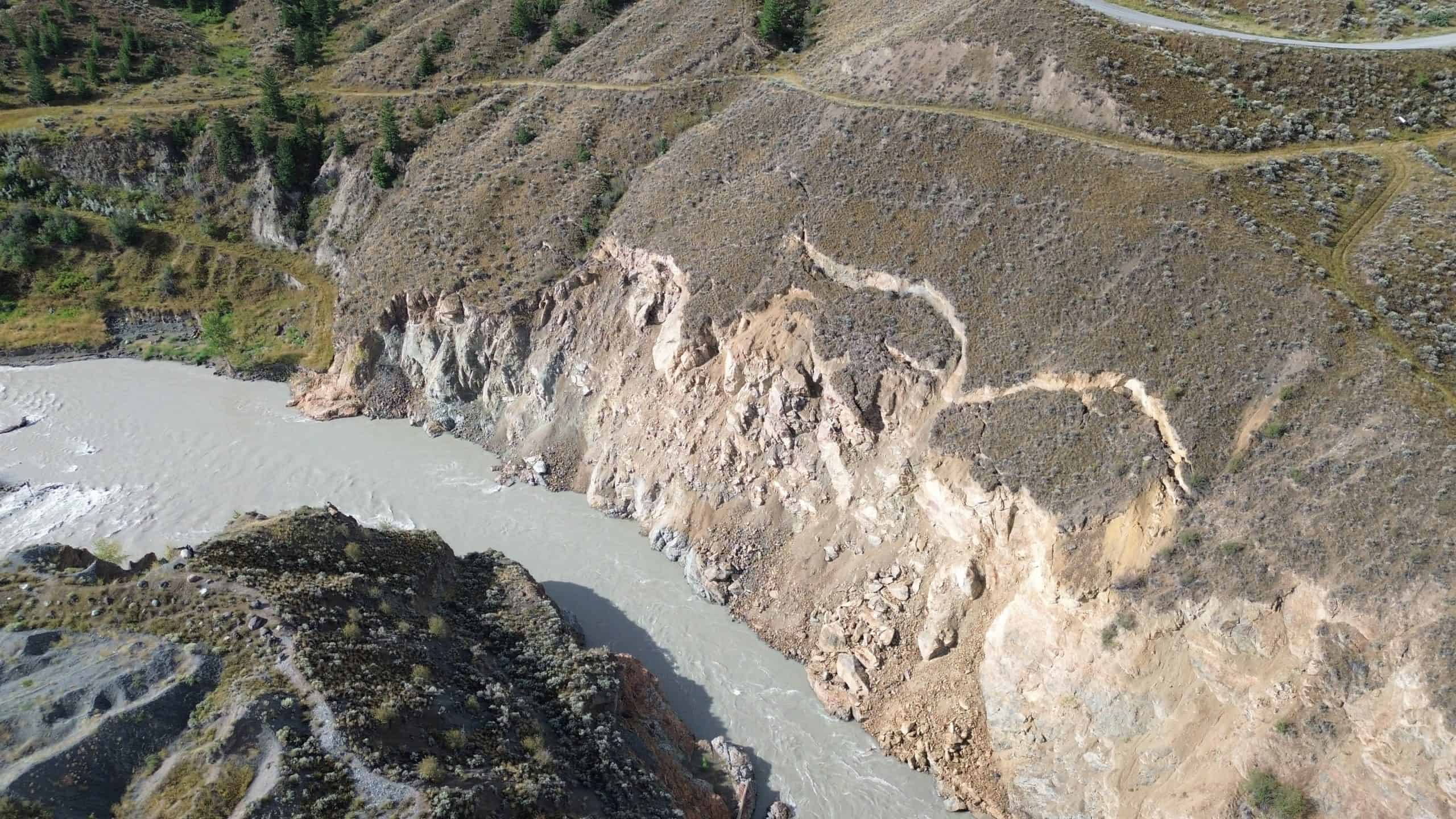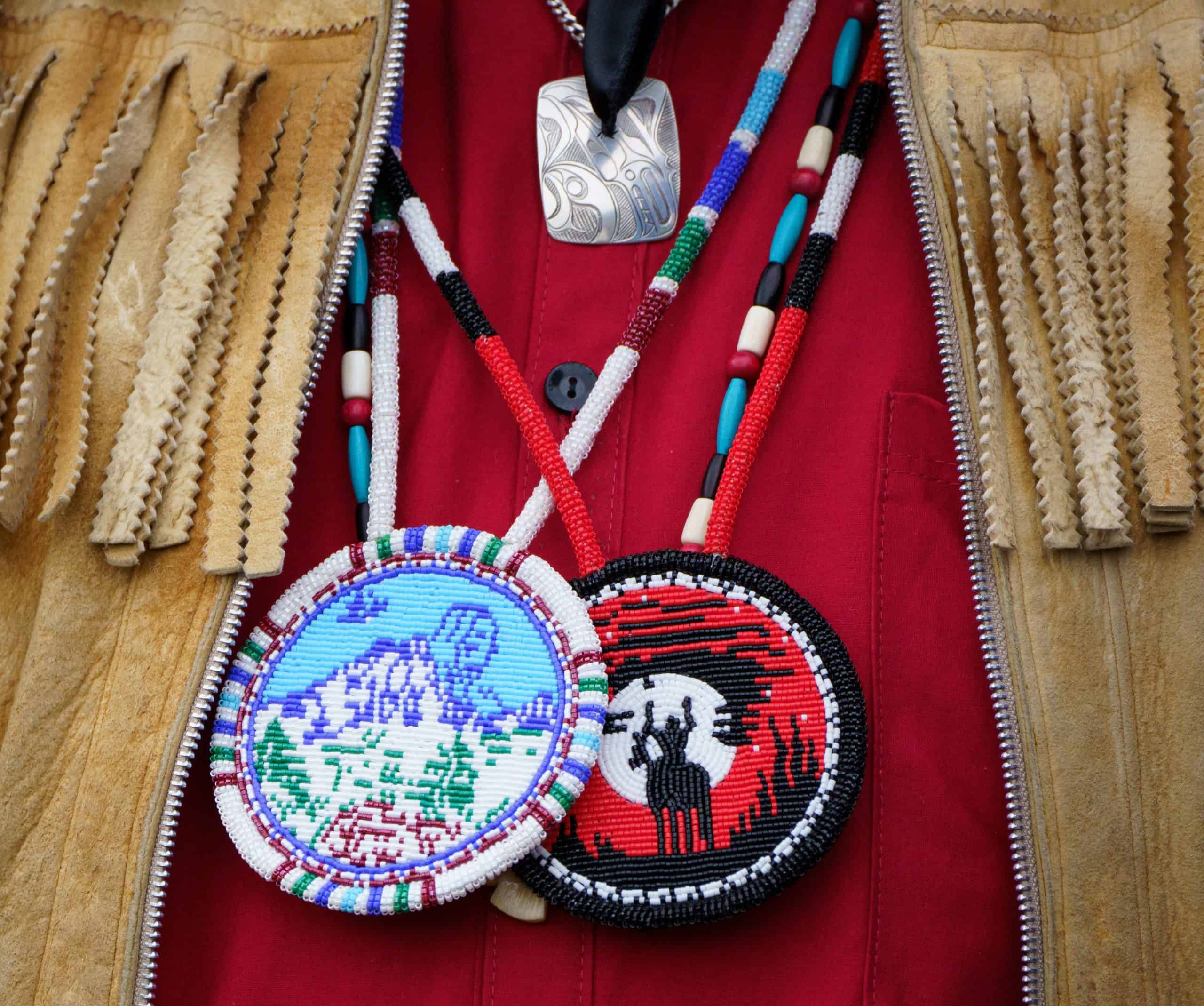Williams Lake, B.C.: Tŝilhqot’in and Sámi communities this week held a historic cultural exchange in Tŝilhqot’in Territory, following a Tŝilhqot’in visit to Sápmi (Sámi Territory) in 2022. The two Nations continued their ongoing cultural exchange and learning from each other on struggles and efforts to protect our lands, waters, cultures and livelihoods.
The Tŝilhqot’in Nation welcomed the Sámi communities of Duorpun, and Gällivare Skogssameby/Gällivare Sami forest reindeer herding community, as well as members of the Sámi villages of Sirges and Luokta Mavas, the Mayor of the Jokkmokk municipality, representatives from Ájtte – the Swedish Mountain and Sámi Museum in Jokkmokk, the former President of the Sámi Parliament in Sweden, professors from the University of Northern British Columbia, and a representative from the Canadian Commission for UNESCO.
The two Nations found lots of common ground and opportunities to learn from each other. The Tŝilhqot’in shared their history and sacred sites, their victory in Canada’s court system being the first and only Indigenous Nation in Canada to obtain a court declaration of Aboriginal Title (Tsilhqot’in Nation v. British Columbia), their successful struggle to protect Teztan Biny (Fish Lake) from the New Prosperity mine proposal, and the impacts of the Gibraltar Mine – Canada’s second largest copper mine.
The Sámi shared their culture including duodji and jojk, the impacts from Aitik – Europe’s largest copper mine, their struggles to protect their reindeer herds and lands from the proposed Gállok Mine, and the lessons they have learned from operating a Sámi museum for over three decades.
The exchange furthered the work of the United Nations’ Decade of Indigenous Languages, and a common thread for the week was how Indigenous values are expressed in Tŝilhqot’in and Sámi languages and culture, and the lessons that language and culture have for all peoples about sustainability. The Nations have committed to continuing to further their cooperation, learning and exchange, including developing a Letter of Understanding to more formally express their relationship, opportunities for future youth exchanges, and the support of the Tŝilhqot’in Nation to the Sámi communities of Jåhkågasska, Duorpun and Sirges as they struggle against the destructive Gállok Mine proposal.
“The Tŝilhqot’in have a reputation around the world for our Title case win and successfully protecting our sacred lands. We are honoured and excited that Indigenous communities from all over the world are reaching out and want to learn from us and build relationships. Over the past few days the Sámi and the Tŝilhqot’in have further solidified a strong friendship and partnership. We look forward to continuing that work into the future. Both Nations share common interests and have fought, or are currently fighting similar battles. For decades the Tŝilhqot’in fought off an open-pit mine proposal that would have brought devastation to our lands, waters, sacred sites and people. Today, our allies, the Sámi face a similar battle at home with the proposal of a mine in their territory without their consent. There is no justification for mining projects that have such damaging impacts on Indigenous lands and cultures. We stand with our friends and call on the Swedish government, to revoke the permit.”
— Nits’ilʔin (Chief) Joe Alphonse, O.B.C, LL.D. (hon.). Tribal Chair, Tŝilhqot’in National Government
“After the recent Swedish government decision to approve a mining permit to exploit the Gállok ironore deposit, the conflict has reached a critical stage. The decision was made without our consent. We are now, together with our neighbouring Sami reindeer herding communities, preparing ourselves for the upcoming environmental assessment. We are prepared to stop the project by all means, and we are inspired by Tŝilhqot’ nations fight to stop the New Prosperity mine proposal at Teztan Biny (Fish Lake), says Mikko Länta, chairman of the Jåkkagaska Sami Reindeer herding Community.”
— Jon-Mikko Länta, Chief of Jåhkågasska
“It was such an honour to host the Sámi on Title lands. The Tŝilhqot’in and Sámi have much in common; including an understanding of how important our youth are in preserving and protecting our lands, laws, culture, traditions and way of life, today, and in the future. Together, we plan to host a youth exchange focused on our Indigenous laws, histories and legends, all of which speak of the importance of the land, how the land was created and staying connected to the land. We believe that it is the younger generation that will bring the world back to the land. We will continue to take every opportunity that we can to learn, share and grow from each other and continue this friendship. We move forward as allies and warriors on a trail to protect the land, recognizing that the battle is for all of us and not just the individual.”
— Nits’ilʔin (Chief) Roger William, Xeni Gwet’in
“Aitik, the biggest copper-mine in Europe, is situated on the territory of Gällivare Skogssameby/Gällivare Sami forest reindeer herding community. Several other mines are in operation or are being established in the region. The Aitik mine was opened without our consent. We are currently experiencing the consequences of the so-called Green Transition. The ongoing industrial transition towards non-fossil production requires large quantities of energy and has resulted in a massive expansion of wind farms. The cumulative land use impacts of mining, large scale forestry and energy production on our territory are threatening the existence of our reindeer herding community and culture”, says the spokeswomen, Hanna Persson.
— Hanna Persson, Board member of Gällivare Skogssameby/Gällivare Sami forest reindeer herding
community
“Our Sami delegation have agreed with the Tribal Tŝilhqot’in National Government to continue our cooperation to protect our lands and territories and to revitalize our languages, traditional knowledge and cultural heritage. There is an urgent need to protect, revitalize and promote Indigenous languages around the world, and our nations have agreed to initiate a long-term youth and cultural exchange. Protecting Indigenous culture and livelihoods require peacebuilding, effective governance, environmental protection and safeguarding of Indigenous rights. We are also grateful to the Canadian UNESCO committee that participated in our visit and contributed to making this culture exchange achievable.”
— Per Jonas Parfa, Chief of Tuorpon
Jacey Warne
Communications Manager
Tŝilhqot’in National Government
(403) 998-7581
jwarne@tsilhqotin.ca
January 15, 2025 — Williams Lake, BC Tŝilhqot’in Nation Takes Action to Save Chilko Salmon
November 6, 2025 — Williams Lake, BC Tŝilhqot’in Call for End to Political Fear-mongering About

